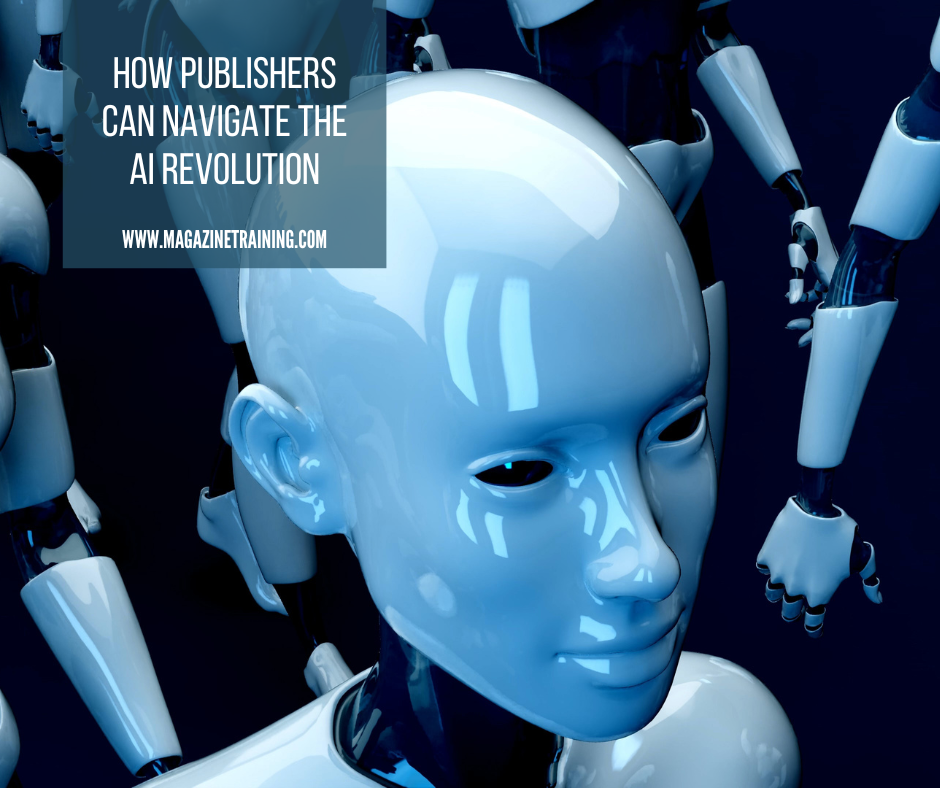
Despite the hype, publishing is still looking at what impact large language models and similar technology may bring.
It’s been just over a year since ChatGPT was introduced to a public mostly unfamiliar with artificial intelligence. It appeared initially to have no obvious relevance to book publishing. Since then everything has changed—and nothing has changed. Publishers are beginning to dive into the new AI tools, exploring the edges, engaging in tentative chats with ChatGPT. But there’s no evidence of a revolution in the practice of publishing. It’s just too soon.
In September, Publishers Weekly presented a half-day online program covering AI and book publishing titled “Artificial Intelligence: Revolution and Opportunity in Trade Publishing.” Peter Brantley and I cohosted eight panels and keynote sessions. The videos are now available without cost on YouTube. If you weren’t able to join us in September, check them out at youtube.com/user/publisherswkly.
We were fortunate to secure the participation of a range of publishing practitioners and authors (and a lawyer!) who shared details of their early experiments and outcomes in bringing AI into their workflows. The sessions were divided by topic, including editorial, production and marketing. The examples provided were real-world and hands-on, and inform many of my thoughts in this article.
AI: A very brief history
Despite all of the commotion around ChatGPT, it’s worth remembering that AI is not new. It has been with us for decades. It just never played the part in our lives that it now demonstrates, perhaps just a little too visibly. Machine learning and natural language processing (NLP) were among the technologies prominent in previous generations of AI. Some publishers sought to incorporate these into their processes but made little progress.
The current generation of AI, based on large language models (LLMs), was developed mostly over the past decade. ChatGPT appeared suddenly on Nov. 30, 2022. Two months later it had 100 million monthly users, the fastest that any technology has moved into the consumer space. (By comparison, Facebook took over two years to reach 100 million users.)
There are three fundamental reasons for such rapid adoption. First, it’s free. Second, you don’t need to buy a new device to use it. And third, you don’t need any training to access ChatGPT (more on that below). Those same factors applied also to Facebook, so why ChatGPT?
As Arthur C. Clarke famously noted, “Any sufficiently advanced technology is indistinguishable from magic.” ChatGPT is magic. The experience of “talking” in everyday language to a machine, and then continuing the conversation… It’s magical. The experience of saying, “I want an image of a book in a balloon in a cloud near the sun,” and, seconds later:
…also magical. GPT-generated images are starting to look similar in style, a little too colorful and fanciful. So I send a second prompt, “now in a style that looks like a 15th century illustration.” Thus:
If I want a video of a book in a balloon in a cloud near the sun, there are more than a dozen tools to choose from, and presto. And a musical soundtrack to go with the video. Well, that too is just like magic.
It’s too late to avoid AI
For authors and publishers preferring not to be sullied with AI, the news is bad: you’re using AI today, and have been using it for years.
by Thad McIlroy, Publishers Weekly
Photo by julien Tromeur on Unsplash
Related posts
Magazine Training International’s mission is to encourage, strengthen, and provide training and resources to Christian magazine publishers as they seek to build the church and reach their societies for Christ.



